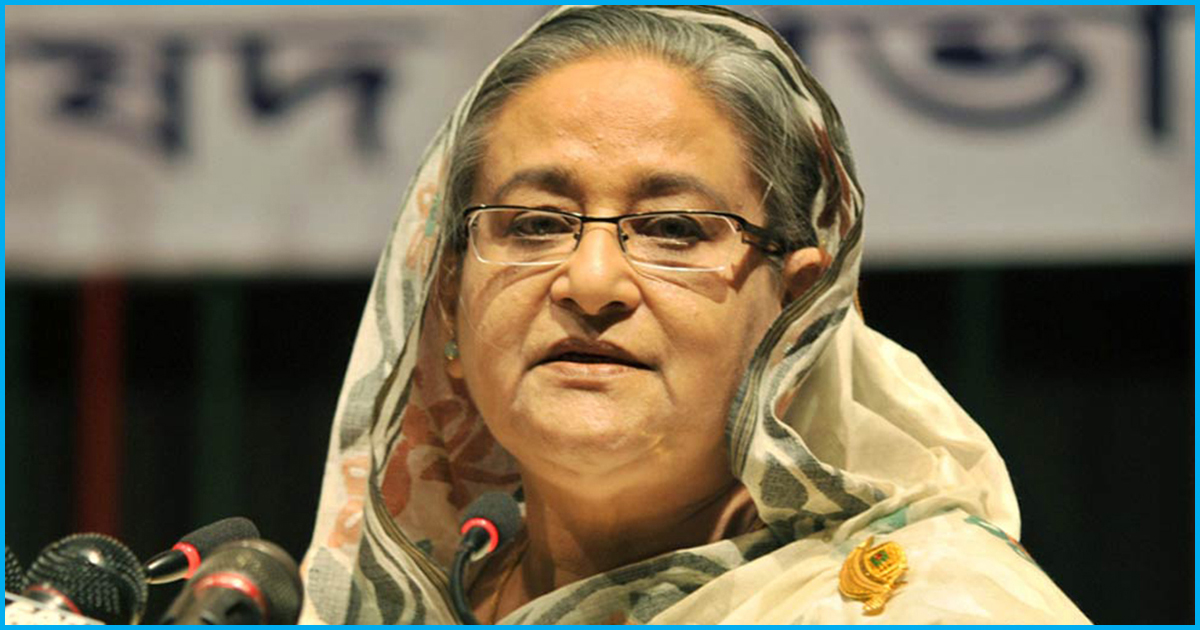
In Bangladesh, Filing False Dowry Cases To Now Invite Punishment
9 May 2018 11:49 AM GMT
On 7th May 2018, the Cabinet chaired by Prime Minister Sheikh Hasina of Bangladesh brought about an amendment to the Dowry Prohibition Act, 1980 of Bangladesh. The Women and Children Affairs Ministry placed the draft ‘Dowry Prohibition Bill 2018’ before the weekly cabinet meeting to update the 1980 Act, which had been previously amended through ordinances in ’82, ’84 and ’86.
As per the new provision (Section 5) of the proposed draft law, the punishment for filing any false case will be maximum five years’ imprisonment or maximum Tk 50,000 as fine or both, reported The Independent BD. Another provision has been changed in respect to the specific amount of monetary punishment stipulated under the law for demanding or giving dowry. Previously the Dowry Prohibition Act of Bangladesh did not specify a monetary punishment for demanding dowry. According to the new provision, any person demanding or giving dowry will have to face maximum five years’ imprisonment, which will not be less than one year’s jail term or maximum Tk 50,000 as fine or both.
While this does seemingly add a much-needed protection to innocent citizens of Bangladesh who may have faced and still do face false cases, the legal situation and ground realities are not exactly black and white.
To keep matters in perspective, it is important to note that even prior to this amendment, the victims of false cases were not defenseless. Section 250 (1) and (2) of the Code of Criminal Procedure, 1898 of Bangladesh empowers the Magistrate, to punish anyone who, in the opinion of the Magistrate had filed a false and frivolous or vexatious case. Section 211 of the Bangladesh Penal Code, 1860 states that, “Whoever, with intent to cause injury to any person, institutes or causes to be instituted any criminal proceeding against that person, or falsely charges any person with having committed an offence, knowing that there is no just or lawful ground for such proceeding or charge against that person, shall be punished with imprisonment of either description for a term which may extend to two years, or with fine, or with both.” Furthermore Section 17 of Women and Children Repression Prevention Act 2000 also punishes a complainant who files false case knowing there is no ground for filing a case against the accused with rigorous imprisonment of not more than 7 years and a fine. Hence, victims of false cases in Bangladesh were not without remedies and this added extra remedy does not act as an extraordinary good for victims of false cases.
What are false cases?
A mere dismissal of a case or lack of conviction does not make it a case of false accusation. Low conviction rates are because of a multiple range of factors, including but not limited to lack of proper investigation, out of court settlement, witnesses turning hostile, etc. Specifically, in cases like dowry and marital crimes, a lot of cases are dropped when the parties end up taking mutual consent divorce or settle their differences amicably leading to cohabitation. Such cases do add to the statistics of cases where no conviction was made, but they do not reflect the reality of false cases.
The new Bangladeshi Law and existing provisions make it adequately clear that the accused of a dowry related offense has a remedy only when the case is clearly proved to be a false one. This means that is a mere discharge of the accused due to lack of evidence, or the complaint not being proved beyond reasonable doubt, does not make it a false case. For it to be termed as a false case, the Court would have to hold, beyond any doubt, that the case was completely baseless, motivated and meant to injure the accused.
Possible On Ground Problems:
As stated earlier, while the new provision – with respect to false cases – does not add anything extraordinary to what was already previously present in Bangladesh’s laws, and is procedurally fair and it protects the innocents accused, while keeping safeguards for genuine complainants, it is important to understand that women in parts of Bangladesh, are still uneducated and without agency of their own and have to depend on their husbands or family. A provision which imposes a huge amount like 50,000 Taka (which rural women may have never even seen) may act as a huge deterrent for legitimate victims of dowry harassment, who come from rural parts of Bangladesh and are unaware of procedural laws. Making legal provisions of the law such that the most marginalized and victimized members of the society from the rural parts of the Country are scared to use the law because educated well to do women misuse the law for their personal gains does not equate to justice for any group. The Bangladesh Government needs make certain that substantive steps are taken to make sure that genuine victims of dowry harassment are not caused further inconvenience, besides having to fight their own in-laws and even the society at times, while trying to make sure that no innocent is convicted for the offense of demanding dowry. The scales of Lady Justice must always be balanced.
 All section
All section













